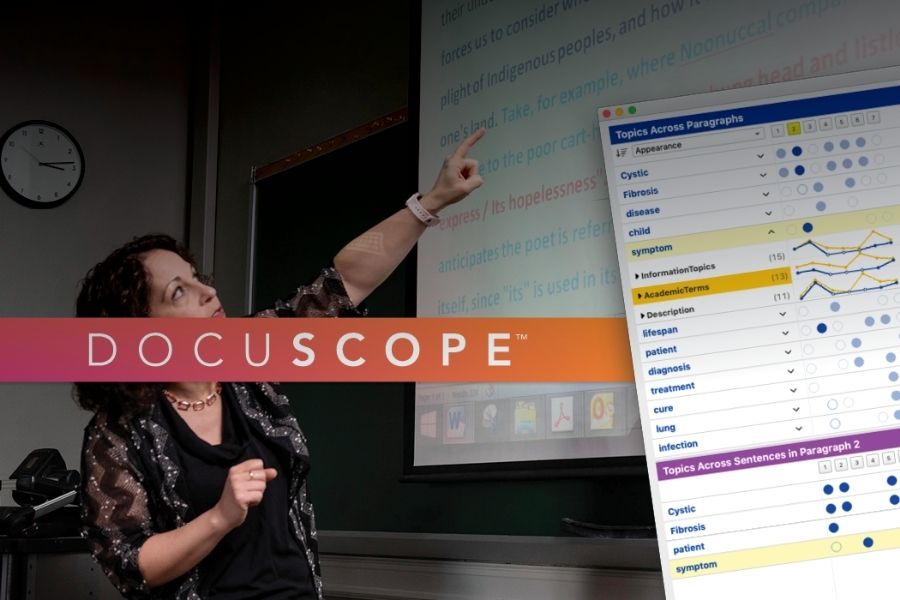
CMU English Professors Develop A Field-Changing Application: DocuScope
By Harry "Quincy" Nolan
Carnegie Mellon University Professors of English, David Kaufer and Suguru Ishizaki have spent the last 23 years collaborating on software to enhance the field of rhetorical research and writing instruction. Their software environment, “DocuScope,” analyzes text from a rhetorical (intended reader) perspective, identifying key topics and the intended reader experience authors co-locate around those topics. DocuScope was born out of the pair’s complementary expertise in rhetoric and interaction design. Now, over two decades later, DocuScope has attracted many users worldwide who use the environment to explore textual corpora from a rhetorical perspective and to teach writing.
DocuScope comes with an authoring environment that supports the curation and classification of English segments into “dictionaries” of intended reader experiences. Kaufer has curated that environment from its inception in 1998 to its current size of nearly 100 million English segments classified into roughly 75,000 experiential categories. Along the way, Ishizaki has continued to improve and expand on DocuScope’s language algorithms, its interface, and its authoring environment. Users of DocuScope now have the choice of using the “default” dictionary Kaufer curated or to author new dictionaries of their own. Users can also curate dictionaries in languages other than English. Researchers in Qatar are currently using DocuScope to create an Arabic dictionary used to analyze everything from classical Arabic texts to Arab social media.
For writing education, teachers in CMU’s writing and communication program use dictionaries that are taken from the default dictionary and carefully customized to support instruction in specific writing genres. Take a cover letter for example. While cover letters accept a wide range of variation, there are certain defining experiences a successful cover letter will seek to convey. We can expect the competent writer of the cover letter to show up in first person, awash in positive terms, sporting a focus on a mutual future with the reader/recruiter just waiting to happen, some past to narrate qualifying stories in support of that merger, and enough strategic language to help the reader/recruiter envision the advantage of making the merger a reality. Docuscope can in principle be customized to fit the specific requirements of any writing situation and to assess how well the language produced in any given context comports with the language expected.
“The heart of this project has been the collaboration between Dr. Ishizaki and me”, Kaufer explained. “I had no idea I wanted to curate rhetorical dictionaries of English until Dr. Ishizaki built an authoring environment too appealing not to. With the project at this state of maturity, I am sure new generations will engage in curating their own DocuScope dictionaries in English and other languages.” When Kaufer first reached out to Ishizaki, he was teaching in the Carnegie Mellon School of Design. “With visual design, you can easily see differences between design solutions on a wall during a studio critique. But with writing, it's a lot more difficult. So, when Dr. Kaufer approached me, he was wondering if we could imagine teaching writing like designers teach design in studios.”
Now in 2021, Docuscope has evolved and expanded into multiple applications for specialized purposes, such as writing education, rhetorical corpus analysis, close reading, and dictionary authoring.